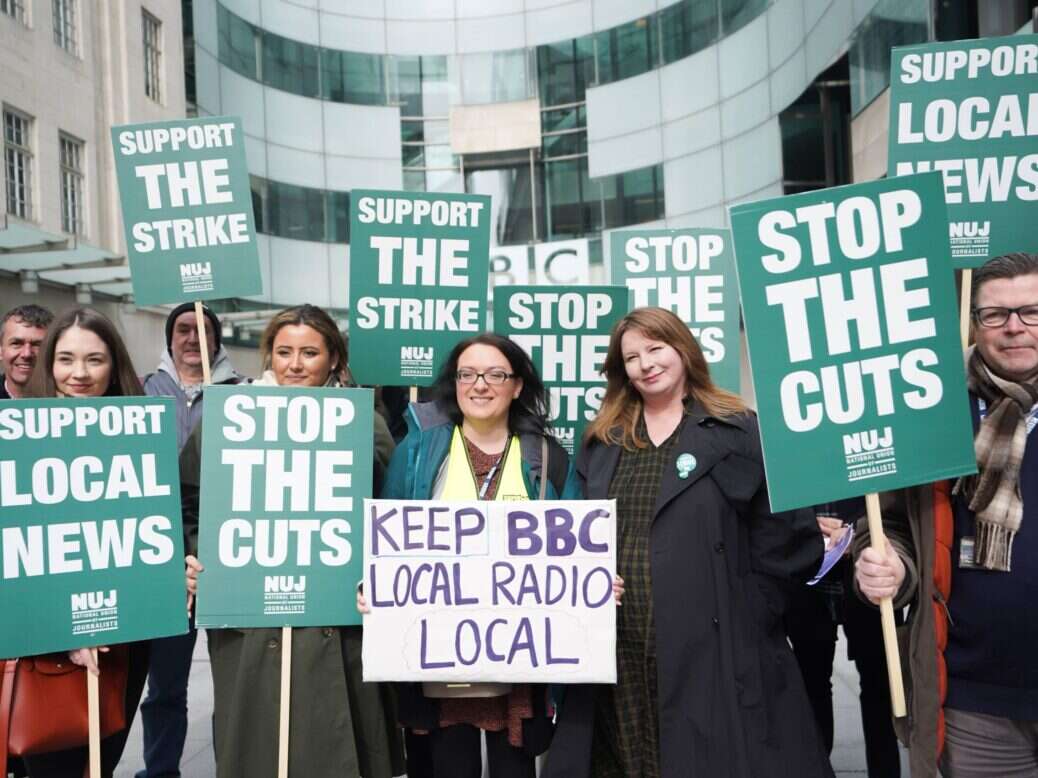
Around 1,000 BBC journalists have walked out on strike over the broadcaster’s proposals to cut dedicated local radio programming.
The strike began at 11am on Wednesday and will last for 24 hours, after which a work-to-rule period will begin in which journalists will work only their contracted hours and duties.
Most of the 1.30pm, 6.30pm and 10.30pm regional BBC TV news programmes were not expected to air on Wednesday. The BBC has scheduled a Planet Earth documentary repeat for 1.30pm and Garden Rescue for 6.30pm, although BBC South West did put out its Spotlight news programme at 1.30pm and BBC Spotlight on BBC South West and BBC East Midlands Today were scheduled to go out at 6.30pm.
At Broadcasting House in London, about 25 journalists walked out at 11am from the radio and main entrances to join officials from the National Union of Journalists and former shadow chancellor John McDonnell who said the strike was “about maintaining their professional standards in the BBC and local journalism”.
The journalists held placards reading “stop the cuts” and “save local news”, while one homemade sign read “keep BBC radio local” and they chanted “save local radio” and “keep local radio local”.
Journalists on the Leeds picket line chanted “hands off local BBC” and in Birmingham they chanted “no ifs, no buts, no local radio cuts”. Similar scenes played out across England, including in Lincoln, Southampton, Bristol, Cambridgeshire, Cornwall, Hull, Nottingham and York.
The BBC was using a mixture of archive programmes, local content with some usual presenters and some stand-ins, as well as some syndicated national programming to fill the radio airwaves on Wednesday.
BBC Radio Solent listeners were told just after 11am: “Due to industrial action, there’s a change to our advertised schedule. For the next hour, we’re looking back at our Falklands coverage.”
At BBC Radio London, mid-morning presenter Eddie Nestor addressed the strike after the 11am news bulletin – in which it also got a mention – but said that despite a change of personnel for Wednesday’s show, listeners should not notice any major differences.
On Thursday, however, he said he would not begin presenting until 12pm, two hours later than usual. He then read out a statement from both the NUJ and BBC.
BBC Radio York played a message at 11am that said “due to industrial action we’re unable to run you our usual output today on local BBC radio” before continuing with music.
Scroll down for photos from picket lines across England
The strike is taking place over plans for BBC local radio stations across England to share more programmes within wider regions, with neighbouring stations sharing after 2pm on weekdays and at weekends. The BBC did put forward an alternative proposal with slightly less content sharing, but this was rejected by 70% of NUJ members who could vote.
NUJ general secretary Michelle Stanistreet said ahead of the strike that it was a “last resort”.
“It’s not simply a question about jobs and conditions for our members – they believe passionately in the value that quality local content brings to their audiences, journalism that is trusted and relied upon in the communities they serve,” she said.
“The BBC’s raiding of local radio budgets to fund its Digital First strategy is wrongheaded and risks undermining a vital part of our public service broadcasting. People want local relevant news that is accessible and that should remain a core part of the breadth of BBC output.”
The BBC has apologised for the disruption caused by the strike, which has fallen on the day of Chancellor Jeremy Hunt’s first Spring Budget.
A BBC spokesperson said: “We’re sorry that audiences will experience some changes to local TV and radio services in England as a result of industrial action by the National Union of Journalists. We have tried to minimise disruption as much as possible.
“We are obviously disappointed that the strike has gone ahead. We have a plan to modernise local services across England – including more news journalists and a stronger local online service – which will see no overall reduction in staffing levels or local funding. Our goal is a local service across TV, radio and online that delivers even greater value to communities.
“We will continue to engage with the trade union and do everything possible to minimise the impact on staff.”
Several BBC local radio presenters were among those speaking out during the strike.
Chris Baxter, who hosts the Late Night West programme which airs in Bristol, Gloucestershire, Wiltshire and Somerset, said: “I won’t be on the radio tonight as I join my fellow NUJ members in industrial action for 24 hours from 11:00. Tonight my programme (normally on 4 stations) will be replaced by a national share. Sadly, that will be the norm by the end of the year!”
However not all are taking part: BBC Three Counties presenter Roberto Perrone, who hosts the 2pm to 6pm slot, said his “first duty, I believe, is to my audience” and he cannot, therefore, take strike action – but he thanked his colleagues within the NUJ.
Of 1,000 NUJ members across BBC Local, 83% voted in favour of strike action on a turnout of 69%. Some 92% backed action in short of a strike.
Paul Siegert, NUJ national organiser, told PA outside Broadcasting House that striking BBC journalists are “are resigned to to the long haul”.
“This strike is 24 hours – straight off the back of that we move to a work-to-rule.
“In local radio, regional TV, good will is really important – people tend to work extra hours, they come in early, they go home late, they cover for their colleagues who have gone off sick.
“That will all stop as part of the work to rule — we hope that will have an impact, we hope that will get the BBC back around the negotiating table.”
Unless the BBC and NUJ can “get back around the negotiating table”, as Siegert put it, other strike dates will be considered – for example the day of the local authority elections in England (Thursday 4 May) “when local radio plays a massive part in explaining the results and being at counts across the across the country” or the coronation of King Charles III (Saturday 6 May).
It is the second major journalists’ strike in the UK in less than a year, after 1,150 Reach journalists across the UK and Ireland walked out in August over pay.
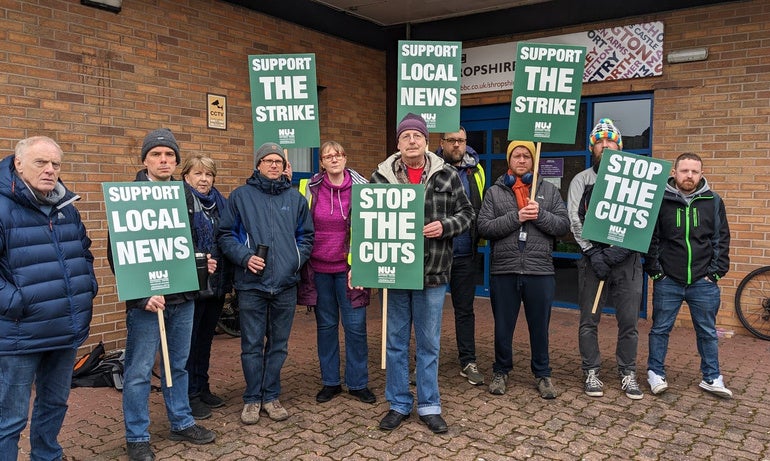
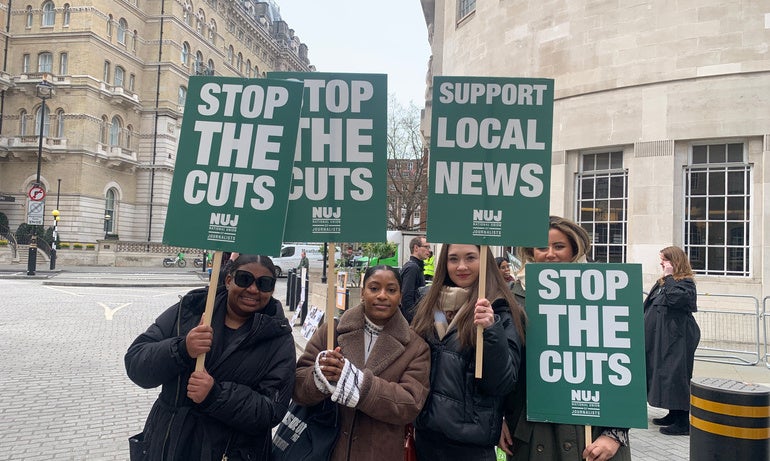
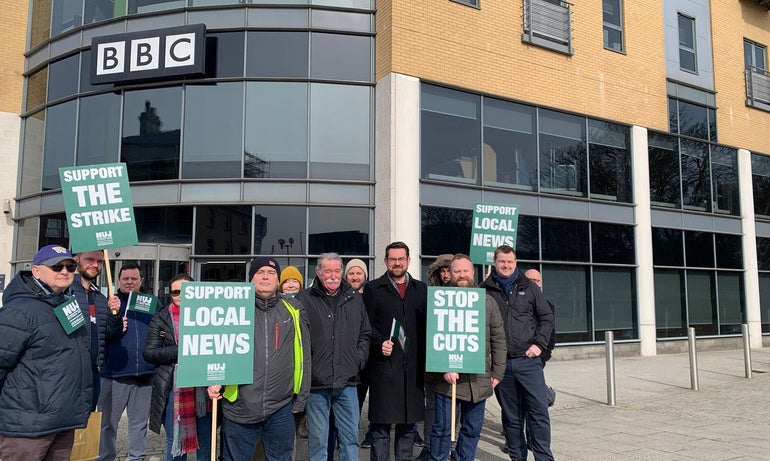
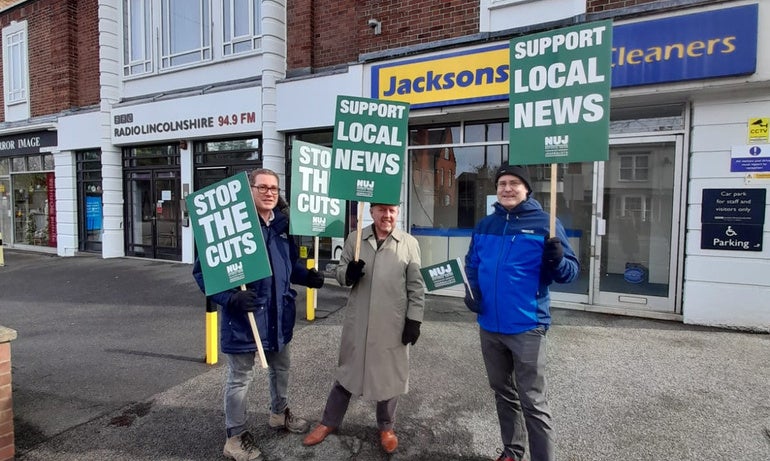
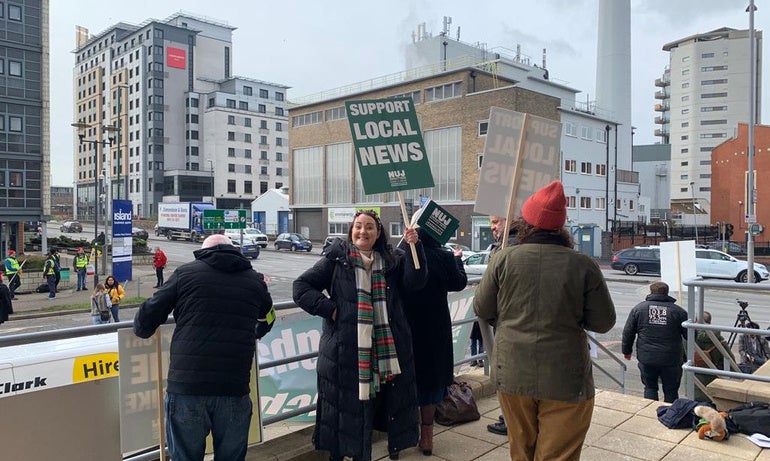
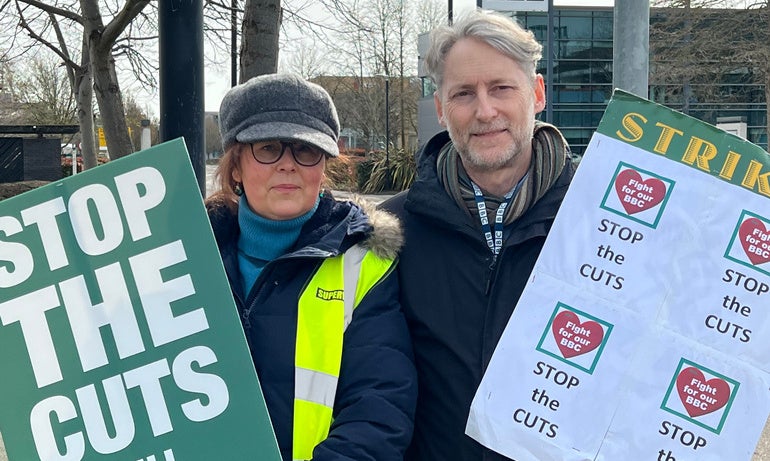
Email pged@pressgazette.co.uk to point out mistakes, provide story tips or send in a letter for publication on our "Letters Page" blog
